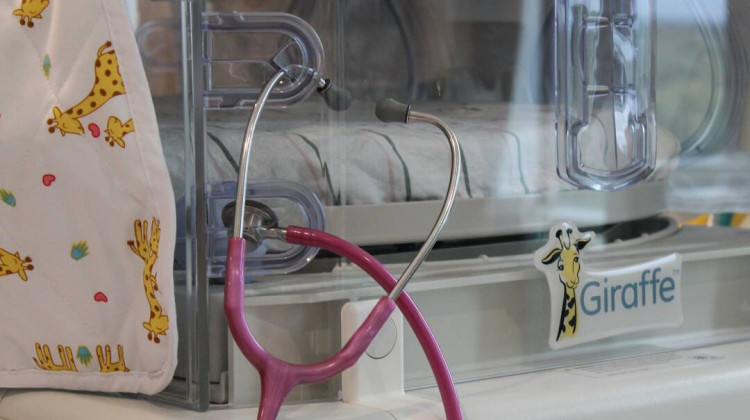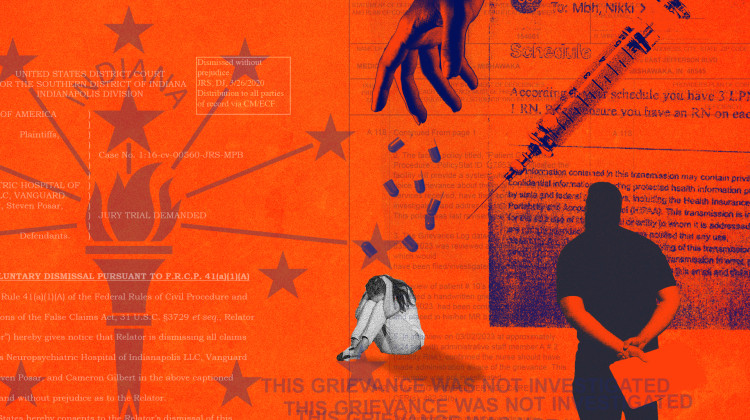Antionette Salifou is a school bus driver in Indianapolis. She recently went to a dentist because of a pain in her mouth. She was told she needed a root canal, and along with the other care she needed, it was going to cost $2,000 – way more than she can afford, since she doesn't have insurance to cover it.
“It’s just hard to fit in there with paying bills and everything," she said.
Salifou’s problem is not uncommon. About one in three Americans lacks dental insurance, and those that have it still may not be getting the care they need.
So last Friday and Saturday, the Indiana Dental Association put on the state's first Mission of Mercy event. Hundreds of volunteers provided free dental care – cleanings, fillings and extractions – to more than 1,200 people, many of whom hadn't seen a dentist in years. Salifou and three of her children showed up to take advantage of the event.
Hannah Maxey is an assistant professor and Director of Workforce Studies at the Indiana University School of Medicine. She says there are three reasons many people aren’t getting to a dentist.
Obviously, one of those is money. Many people can’t afford dental insurance. Those who qualify for Medicaid have some dental coverage, but based on 2012 data, less than a third of dentists in Indiana reported being Medicaid providers. Indiana’s recent Medicaid expansion will likely improve access, but it’s too soon to measure.
Medicare doesn’t cover regular treatment. So seniors who can’t afford separate dental insurance may be out of luck.
“Something that’s up and coming is basically going to be that gap of people who age into Medicare, and maybe are not able to afford supplemental coverage for prevention and restoration," Maxey says.
Another barrier is availability. Dentists tend to congregate in areas where people have private insurance. “Communities that have high volumes of low-income individuals...are generally deserts for dental services,” Maxey says.
The third barrier is education. Because dental care is so isolated from the rest of the healthcare system, people may not know that it’s essential.
“We’ve fostered a culture where people don’t see it as the same as their general or overall health," Maxey says. "Especially in low income populations, it may be seen as an extra luxury service that you get if you can afford it, or if you’re in pain and absolutely need it.”
Dr. Steven Holm is president of the Indiana Dental association. He says that’s a bad way of looking at dental care, which can impact overall health.
“It’s important for a person’s well being," he says. "If you’ve got problems going in your mouth, it can exacerbate all the other conditions and make them worse.”
And a healthy mouth has other impacts, too. Dental problems can hinder employment, and affect job or school performance.
Holm says the volunteers are excited to be helping people, but he acknowledges that the Mission of Mercy is just a two day event. He and Maxey both agree that more needs to be done to get people into regular dental care.
But it’s a start.
Salifou got her root canal, and her three kids had their teeth examined and cleaned – some of them pulled – and got fillings and x-rays. And it was all free. Salifou’s daughter wasn’t happy after her appointment, so it took some convincing, but she finally smiled.
 DONATE
DONATE








 Support WFYI. We can't do it without you.
Support WFYI. We can't do it without you.